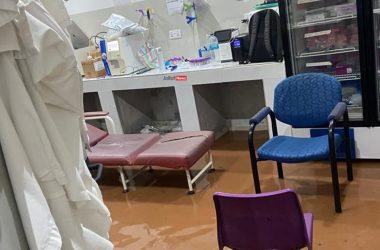By Kemo Cham
A new report released Monday indicates that the last hope in the form of medicine to fight the highest killer disease on the continent of Africa, Malaria, is at risk of being overcome by resistant strain of the parasite.
The report, as published by AP, cited poor quality of drugs sold in three African countries, including Senegal, as raising fears of increased drug resistance which could wipe out the potency of the drug. Malaria, according figures, kills 1 million people each year.
The survey said that between 16 percent and 40 percent of artemisinin-based drugs sold in Senegal, Madagascar and Uganda failed quality testing. The report added that either the drug has impurities or it does not containing enough active ingredients.
Artemisinin-based drugs are said to be the only affordable effective treatment for malaria; the rest having been rendered useless due to resistance caused by mutation of the parasites causing the infection. Resistance is caused by patients not taking enough medicine to kill all of the mosquito-transmitted parasites in the system.
Experts say that if the world loses this only available drug, many people might die as there is no reliable replacement.
“It is worrisome that almost all of the poor-quality data that was obtained was a result of inadequate amounts of active (ingredients) or the presence of impurities in the product,” the report quoted Patrick Lukulay, director of the U.S. government funded body which conducted the survey. “This is a disturbing trend that came to light.”
Accordingly, the report also revealed that both the public and private health sectors are found containing the bad drugs. It added that this means governments, some of who buy medicines with donor funds, aren’t making enough effort to prevent poor-quality drugs from getting into their countries.
While all of the drugs tested from the public sector in Uganda passed the quality tests, 40 percent of the artemisinin-based drugs in Senegal failed, the report said.
“There are countries where donated medicines are not subjected to quality controls, they’re just accepted,” said Lukulay. “There are countries in Africa where Chinese products have been donated and found to be unacceptable later in the public sector.”
Trending :
- 18 hours ago
- GPA Staff Sent Home Over Multi-Million Dalasi Financial Scandal But…
- 18 hours ago
- Gambia Gov’t Puts Finishing Touches To Gamtel/Gamcel Privatisation Project
- 18 hours ago
- Story Of Clothes Dearth At Mile II Galvanizes SK Jaiteh Into Donating To Inmates
- 19 hours ago
- Cement Importers Association Petitions Gambian Authorities
- 1 day ago
- Ex-UDP UK Secretary Darboe Dismisses Fears Of Bensouda Repeating Barrow’s ‘Betrayal’




